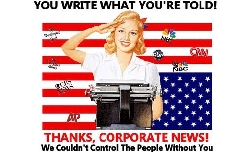– The evolution of Occupy Wall Street.
Click for AUDIO VERSION.
To use this segment in a Radio broadcast or Podcast, send TIM a request.
 Unless you have been living under a rock lately, you are probably now familiar with the term, "Antifa," but are not too sure what it represents. In a nutshell, it is an abbreviated form of "Anti Faschists," and is at the heart of the violent protests plaguing America. Antifa was there at Charlottesville, VA, in Phoenix, AZ for the Trump rally, at the desecration of several Civil War monuments, and more recently at the heart of the violent Berkeley, CA protests. These were ugly hostile environments the police had difficulty controlling.
Unless you have been living under a rock lately, you are probably now familiar with the term, "Antifa," but are not too sure what it represents. In a nutshell, it is an abbreviated form of "Anti Faschists," and is at the heart of the violent protests plaguing America. Antifa was there at Charlottesville, VA, in Phoenix, AZ for the Trump rally, at the desecration of several Civil War monuments, and more recently at the heart of the violent Berkeley, CA protests. These were ugly hostile environments the police had difficulty controlling.
Make no mistake, Antifa promotes anarchy, and proudly proclaims itself as such in their literature and web pages. They are also communists with a deep aversion to capitalism. They claim their group descends from a like-titled European group of the early 20th century. However, I could find no evidence today's Antifa knows what Fascism truly means. They claim to want to destroy what they call the "American Plantation." From their perspective, they see slavery in every minority group and abhor their white Christian "masters." Yet, many of their members are middle class whites. They want liberation and freedom ON THEIR TERMS, not as defined by the Constitution. As such, they advocate the overthrow of the United States government and are committed to combating any sign of support for the government or any other opinion conflicting with their own. And, No, they are most definitely not advocates of free speech as prescribed by the First Amendment.
In reality, Antifa's roots are planted in the Occupy Wall Street Movement of 2011, a group of people seeking social and economic reform. Interestingly, the Occupy movement quickly faded from view following the re-election of President Barack Obama in 2012. However, after Donald Trump was elected in 2016, a period of social unrest grew, all aimed at resisting the new president at every turn. The tactics, unfortunately, were less peaceful and more militaristic. Consequently, Antifa began to flourish.
Antifa's numbers are relatively small, but they are getting organized and beginning to recruit impressionable millennials either in school or fresh out of college. Many professors preach Socialist dogma to their students thereby influencing their motivation and perspective. As a result, they foster Antifa recruits.
Currently, the tactics of Antifa appear to be based on a "Minute Man" approach whereby whenever a major demonstration is led by Republicans, such as a pro-Trump rally, they rush to the scene and engage in vocal and violent confrontation. The theory is that if they do this enough times, they hope to suppress any outward signs of support for the president. It's called "intimidation." They also hope to spin the media to promote their values.
Antifa is now in the process of creating a network of chapters throughout the United States, the latest being in Philadelphia. Such meeting places are used to recruit and train new members in various organizational and communications tactics. The concern though is the teaching of terrorism, complete with military training.
The mouthpiece for Antifa is the web page "It's Going Down," which spreads information and encourages support for the group. The main web page for the group is titled, "Revolutionary Abolitionist Movement," which articulates their purpose and activities. They also claim to rely on donations and have established an Internet Fund drive. The irony here is that Antifa are devout anti-capitalists, yet when asked "Why do we ask for money?", they claimed, "Sadly we have not freed ourselves from capitalism. We too need to eat and pay the bills."
Antifa makes no pretense they are unwilling to use violence to serve their needs and have demonstrated their willingness to do so. Photos on their web site and elsewhere proudly display a variety of weapons and recruits learning how to use them. However, these are predominantly young people who want to graduate from playing "Call of Duty" on a computer to actually facing violent confrontation. I suspect many are naive about what they are doing and do not realize the consequences of their actions. This becomes a dangerous scenario that could lead to the deaths of either themselves or their opposition. Should they develop a well equipped arsenal, someone is bound to eventually pull a trigger and all Hell will break loose.
As real as the prospect of violence is, Democrats have been slow in condemning Antifa; only recently has Nancy Pelosi spoken against them, but we have yet to hear from Chuck Schumer, the Clintons, and former President Barack Obama. Their silence only serves to encourage the Antifa movement, not to suppress it. Even the Main Stream Media appears reluctant to take them to task.
Make no mistake, Antifa is worse than all of the left-wing nut jobs combined, including the Black Panthers and Black Lives Matter. They are misguided, armed, and view themselves as international terrorists. This is not about "American Plantations"; it's about the overthrow of the United States government. If you hear someone sympathize with Antifa, be sure to straighten them out.
Keep the Faith!
Note: All trademarks both marked and unmarked belong to their respective companies.
 Tim Bryce is a writer and the Managing Director of M&JB Investment Company (M&JB) of Palm Harbor, Florida and has over 40 years of experience in the management consulting field. He can be reached at timb001@phmainstreet.com
Tim Bryce is a writer and the Managing Director of M&JB Investment Company (M&JB) of Palm Harbor, Florida and has over 40 years of experience in the management consulting field. He can be reached at timb001@phmainstreet.com
For Tim's columns, see: timbryce.com
Like the article? TELL A FRIEND.
Copyright © 2017 by Tim Bryce. All rights reserved.
Also read Tim's columns in the THE HUFFINGTON POST
NEXT UP: THE SFB QUOTIENT - A test to measure yourself.
LAST TIME: TWO TYPES OF LEADERS - Which one do you work for?
Listen to Tim on WZIG-FM (104.1) in Palm Harbor,FL; KIT-AM (1280) in Yakima, Washington "The Morning News" with hosts Dave Ettl & Lance Tormey (weekdays. 6:00-9:00am Pacific). Or tune-in to Tim's channel on YouTube. Click for TIM'S LIBRARY OF AUDIO CLIPS.
 There seems to be two types of leaders in the corporate world these days; on the one extreme is the micromanager who supervises everyone's work, and on the other end of the spectrum is the person who wants everyone to love him. Interestingly, neither approach is effective for true leadership. Whereas the micromanager tends to turn people off simply because he doesn't respect the workers ability to do their jobs properly, the "lover" commands no respect either as he tends to avoid taking a stand on any issue; he just wants to keep everyone happy and hopes they will somehow work together towards some common goals. Inevitably they do not and chaos ensues. I am reminded of what former UK Prime Minister Margaret Thatcher said, "Standing in the middle of the road is very dangerous; you get knocked down by the traffic from both sides."
There seems to be two types of leaders in the corporate world these days; on the one extreme is the micromanager who supervises everyone's work, and on the other end of the spectrum is the person who wants everyone to love him. Interestingly, neither approach is effective for true leadership. Whereas the micromanager tends to turn people off simply because he doesn't respect the workers ability to do their jobs properly, the "lover" commands no respect either as he tends to avoid taking a stand on any issue; he just wants to keep everyone happy and hopes they will somehow work together towards some common goals. Inevitably they do not and chaos ensues. I am reminded of what former UK Prime Minister Margaret Thatcher said, "Standing in the middle of the road is very dangerous; you get knocked down by the traffic from both sides." When we join a new company, we're all hoping for a fresh start and clean slate. The last thing we want is to get embroiled in political intrigue, regardless of how petty it might seem. Most of us just want to do our work and move along with our lives. Even if this were so, which is rarely the case, we must still deal with "political correctness" as defined by society; we have to recognize certain protocols in our mannerisms, language, and conduct. So, even before we get started in a new job, we have to recognize there is going to be some form of politics, like it or not. I remember visiting a manufacturing company in the Midwest where a Vice President proudly said to me, "You'll like this place Tim, there's no politics here whatsoever." And I think he firmly believed it too. In reality, they had more cutthroat politics than I had ever seen before.
When we join a new company, we're all hoping for a fresh start and clean slate. The last thing we want is to get embroiled in political intrigue, regardless of how petty it might seem. Most of us just want to do our work and move along with our lives. Even if this were so, which is rarely the case, we must still deal with "political correctness" as defined by society; we have to recognize certain protocols in our mannerisms, language, and conduct. So, even before we get started in a new job, we have to recognize there is going to be some form of politics, like it or not. I remember visiting a manufacturing company in the Midwest where a Vice President proudly said to me, "You'll like this place Tim, there's no politics here whatsoever." And I think he firmly believed it too. In reality, they had more cutthroat politics than I had ever seen before. I have a problem with gossip in the office but I think we are all guilty of some infraction of it at some time or another. Petty gossip is one thing, viscous slander is something else altogether. Not surprising, there is a lot of misinformation floating around in an office regarding people and corporate direction. We often hear of rumors of people bucking for a certain job, looking to leave and join a competitor or customer, to sabotage a key project, or that the company is going to down size or outsource the operations to Timbuktu. Naturally, such rumors can put a damper on employee morale, making it harder to concentrate and see assignments through to completion. Managers should be sensitive to rumors and squelch them as soon as possible. If not, productivity will suffer. To do so, the manager should always keep in ear open as to what is being said around the water cooler or lunch table. Meeting with key members of the staff periodically for a drink after hours can also be useful for detecting what is being said as well as to build camaraderie and trust with the staff.
I have a problem with gossip in the office but I think we are all guilty of some infraction of it at some time or another. Petty gossip is one thing, viscous slander is something else altogether. Not surprising, there is a lot of misinformation floating around in an office regarding people and corporate direction. We often hear of rumors of people bucking for a certain job, looking to leave and join a competitor or customer, to sabotage a key project, or that the company is going to down size or outsource the operations to Timbuktu. Naturally, such rumors can put a damper on employee morale, making it harder to concentrate and see assignments through to completion. Managers should be sensitive to rumors and squelch them as soon as possible. If not, productivity will suffer. To do so, the manager should always keep in ear open as to what is being said around the water cooler or lunch table. Meeting with key members of the staff periodically for a drink after hours can also be useful for detecting what is being said as well as to build camaraderie and trust with the staff. Recently, I was asked to give a talk at a local Republican Club meeting regarding my experiences with the press. Actually, I was a last minute substitution for a gentleman who was suddenly called out of town. Having only fifteen minutes to prepare, I jotted down some notes and "winged it." Fortunately, it went well and I was heartily congratulated afterward. Herein, is the reconstructed talk based on my notes from the back of a cocktail napkin:
Recently, I was asked to give a talk at a local Republican Club meeting regarding my experiences with the press. Actually, I was a last minute substitution for a gentleman who was suddenly called out of town. Having only fifteen minutes to prepare, I jotted down some notes and "winged it." Fortunately, it went well and I was heartily congratulated afterward. Herein, is the reconstructed talk based on my notes from the back of a cocktail napkin: I cringe when I hear someone say, "A cluttered desk is the sign of a brilliant mind." I don't know who invented this little gem, some claim Albert Einstein, but I can't seem to find any record of it. More likely, it was some slob who got called up on the carpet by his boss for running a pigpen.
I cringe when I hear someone say, "A cluttered desk is the sign of a brilliant mind." I don't know who invented this little gem, some claim Albert Einstein, but I can't seem to find any record of it. More likely, it was some slob who got called up on the carpet by his boss for running a pigpen. I was recently at a gathering of independent consultants from around the Tampa Bay area and we got around to talking about the concerns of owners of small businesses. From this, we devised a list of concerns commanding the attention of small-to-medium sized business owners, to wit:
I was recently at a gathering of independent consultants from around the Tampa Bay area and we got around to talking about the concerns of owners of small businesses. From this, we devised a list of concerns commanding the attention of small-to-medium sized business owners, to wit:  Let me begin by saying I genuinely believe Zippo Lighters and Cross Pen and Pencils are the best products of their kind in the world today. I know there are more expensive products out there with more elegant designs, but for my money it's Zippo and Cross. Now let me explain why. I've enjoyed these products for over thirty years now and in that time I've learned that as good and durable as these products are, they will inevitably experience normal wear and tear, thereby requiring maintenance. In this era of disposable products, our first inclination might be to simply throw such products away and purchase new ones, but both companies offer lifetime warranties which they stand behind. And I have taken them up on their offer to repair products on more than one occasion with no questions asked. Each time I send in my lighters and pen and pencil sets, they come back like new, and the only thing I paid for was postage to ship the products to them.
Let me begin by saying I genuinely believe Zippo Lighters and Cross Pen and Pencils are the best products of their kind in the world today. I know there are more expensive products out there with more elegant designs, but for my money it's Zippo and Cross. Now let me explain why. I've enjoyed these products for over thirty years now and in that time I've learned that as good and durable as these products are, they will inevitably experience normal wear and tear, thereby requiring maintenance. In this era of disposable products, our first inclination might be to simply throw such products away and purchase new ones, but both companies offer lifetime warranties which they stand behind. And I have taken them up on their offer to repair products on more than one occasion with no questions asked. Each time I send in my lighters and pen and pencil sets, they come back like new, and the only thing I paid for was postage to ship the products to them. The attacks on our national monuments have less to do with history and social consciousness, and more to do with control over today's political climate. Allow me to explain. We hear of statues in the south pertaining to the Civil War being removed or defaced, particularly those depicting Generals Robert E. Lee and J.E.B Stuart. As a youngster growing up in the north, I was taught of the evils of slavery and the costly war to end it. However, as I grew up and moved around for my profession, I learned of the culture of the South and the pride of its citizens. They knew they lost the war and learned to live with it. For over a hundred years, they honored their dead for their spirit. Now, suddenly, such symbols are under attack. Even this misplaced Yankee, who now resides in the South, is alarmed by the determined push to deface our history.
The attacks on our national monuments have less to do with history and social consciousness, and more to do with control over today's political climate. Allow me to explain. We hear of statues in the south pertaining to the Civil War being removed or defaced, particularly those depicting Generals Robert E. Lee and J.E.B Stuart. As a youngster growing up in the north, I was taught of the evils of slavery and the costly war to end it. However, as I grew up and moved around for my profession, I learned of the culture of the South and the pride of its citizens. They knew they lost the war and learned to live with it. For over a hundred years, they honored their dead for their spirit. Now, suddenly, such symbols are under attack. Even this misplaced Yankee, who now resides in the South, is alarmed by the determined push to deface our history. I recently drove from the South to the Midwest and back again. It has been quite a while since I've driven a long distance (about 1,000 miles each way) and it caused me to remember why I don't like to take such trips anymore. We all have our own little idiosyncrasies for driving; for example, older people tend to move more slowly and cautiously than younger people who race pell-mell down the highway; and people tend to drive according to the customs of the geographical region they come from. Nonetheless, I have assembled a "Top 10" list of the basic driving habits irritating me and, if corrected, would make driving a lot more bearable for all of us. There is nothing earth-shattering here, just some observations on common driving deficiencies:
I recently drove from the South to the Midwest and back again. It has been quite a while since I've driven a long distance (about 1,000 miles each way) and it caused me to remember why I don't like to take such trips anymore. We all have our own little idiosyncrasies for driving; for example, older people tend to move more slowly and cautiously than younger people who race pell-mell down the highway; and people tend to drive according to the customs of the geographical region they come from. Nonetheless, I have assembled a "Top 10" list of the basic driving habits irritating me and, if corrected, would make driving a lot more bearable for all of us. There is nothing earth-shattering here, just some observations on common driving deficiencies: I have finally reached that stage in my life where my children have grown up and are off pursuing other interests. Its kind of strange experiencing the empty nest syndrome. You start to notice small changes right away, such as how the volume of trash goes down, as does your water, power, and food bills. The phone doesn't ring as much and it's generally a lot quieter around the house at night. Maybe the hardest part is changing your eating habits. Instead of shopping and cooking for a group of people, you find yourself staring at the TV over a Marie Callender pot pie or a Stouffer's pizza. It takes quite an adjustment to learn how to cook for two.
I have finally reached that stage in my life where my children have grown up and are off pursuing other interests. Its kind of strange experiencing the empty nest syndrome. You start to notice small changes right away, such as how the volume of trash goes down, as does your water, power, and food bills. The phone doesn't ring as much and it's generally a lot quieter around the house at night. Maybe the hardest part is changing your eating habits. Instead of shopping and cooking for a group of people, you find yourself staring at the TV over a Marie Callender pot pie or a Stouffer's pizza. It takes quite an adjustment to learn how to cook for two. "Are I.T. Workers Blue Collar?" Interesting question. I was recently asked this by some executives who were concerned with improving the productivity of their I.T. departments. I asked them to explain why they thought this way. They contended their I.T. people (e.g., analysts and programmers) exhibit a lot of blue collar characteristics, e.g., repetition in types of work performed, they do not dress or act like professionals, and regularly punch in and out of work with little interest in going above and beyond the call of duty.
"Are I.T. Workers Blue Collar?" Interesting question. I was recently asked this by some executives who were concerned with improving the productivity of their I.T. departments. I asked them to explain why they thought this way. They contended their I.T. people (e.g., analysts and programmers) exhibit a lot of blue collar characteristics, e.g., repetition in types of work performed, they do not dress or act like professionals, and regularly punch in and out of work with little interest in going above and beyond the call of duty. We now live in a fast paced society where we expect products and services to be delivered rapidly, cheaply, and with a high degree of quality. This is particularly true in the systems and software industry. If we lived in a perfect world, systems and software would be developed rapidly and inexpensively, they would effectively satisfy business needs, and would be easy to maintain and modify. There is only one problem with this scenario: it is a fantasy. In reality, we live in a "disposable" world where systems and software are slapped together in the hopes everything will hold together and will pacify the end-user for the moment. Some people believe striving for a Utopian world is an impossibility and, as such, resign themselves to rewriting systems and software time and again as opposed to designing them to be industrial strength.
We now live in a fast paced society where we expect products and services to be delivered rapidly, cheaply, and with a high degree of quality. This is particularly true in the systems and software industry. If we lived in a perfect world, systems and software would be developed rapidly and inexpensively, they would effectively satisfy business needs, and would be easy to maintain and modify. There is only one problem with this scenario: it is a fantasy. In reality, we live in a "disposable" world where systems and software are slapped together in the hopes everything will hold together and will pacify the end-user for the moment. Some people believe striving for a Utopian world is an impossibility and, as such, resign themselves to rewriting systems and software time and again as opposed to designing them to be industrial strength.